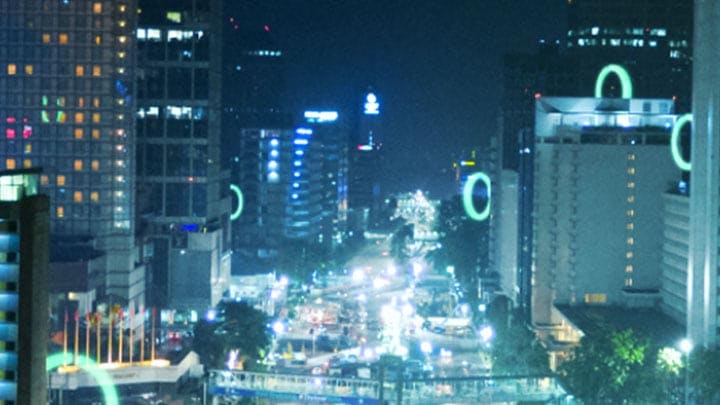Regulating the night skies
The Canary Islands has the clearest skies in Europe. It offers exceptional conditions to observe the stars and is home to several internationally renowned observatories. The quality of the sky is even protected by Spanish law (Law for the Astronomical Quality of the Instituto de Astrofísica de Canarias (IAC ) Observatories). This requires municipalities in Tenerife North and La Palma to take measures to mitigate light pollution, such as banning the use of high-pressure mercury lamps or white light lamps, with a few notable exceptions including lighting for sports and advertising.
“For astronomers and those who enjoy starlit nights, the quality of our skies is second to none. We want to preserve this precious resource and at the same time make our streets even safer for citizens and tourists,” said Lope Afonso, Mayor of Puerto de la Cruz. “This latest technology meets the needs of local observatories and will also help us to reduce the electricity we use for public lighting by around 65%, while providing us with options for future smart city services. We want Puerto de la Cruz to become one of the most innovative cities in Europe, that’s the reason why we choose to partner with Signify to introduce this ground-breaking technology to our city.”
Getting Smart
The project involves 6,000 street lights. Included is a pilot project with 100 street lights with Philips SR luminaires that have sockets to accommodate existing and future sensors from other suppliers (such as noise, pollution, traffic monitoring, etc.) and can be paired with software applications from Signify. Testing this technology supports the municipality’s vision to explore smart city services to better serve its citizens and protect the environment. Installation of the street lights controlled by the Interact City lighting system and management software is set for completion in August (see notes to editors).
This project demonstrates Signify’s continued innovation in energy efficient LED technologies and its leadership in providing lighting for the Internet of Things.
Signify became the new company name of Philips Lighting as of May 16, 2018. The legal name of Signify will be changed in Spain at the beginning of 2019.
Picture Caption: Teide Observatory, Tenerife. The Milky Way is hidden from more than one-third of humanity. For an even better view of the stars, Signify is installing astronomy-friendly street lighting in the city of Puerto de la Cruz, Tenerife, Canary Islands. The smart street lights minimize city light spilling into the night sky. For images click here.
Photo credit: Daniel López / IAC
Notes to editors:
Puerto de la Cruz project
- A total of 6,000 street lights will be managed under a contract awarded to ImesAPI, which is also undertaking the installation.
- Around 3,000 Philips Luma and 1,500 Philips ClassicStreet luminaires will be monitored, controlled and managed remotely using Signify’s Interact City street lighting management system.
- 1,500 sodium-vapor street lights from the existing installation will be added to Interact City, using connector kits, as well as the management of 165 cabinets.
- A pilot project will feature 100 Philips SR luminaires equipped with two system ready sockets (one on top and one on the bottom of each luminaire) compatible with the internationally accepted Zhaga standard.
- For Puerto de la Cruz installation, the anticipated energy saving is around 65% compared to conventional lighting.
How the astronomer-friendly lighting works
- The LED modules within the luminaires contain special color optics that create a “light recipe” by filtering out mainly blue light, the part of the light spectrum most associated with sky glow. The same optics also shape the direction of the light giving excellent light distribution.
- The new street lights meet IAC standards.
- The LED modules are approximately 16% more efficient in lumen output than amber LEDs, which have been used in the past to mitigate sky glow.
- Signify has deployed street lighting that uses similar light recipes tailored to be friendly to bats.

